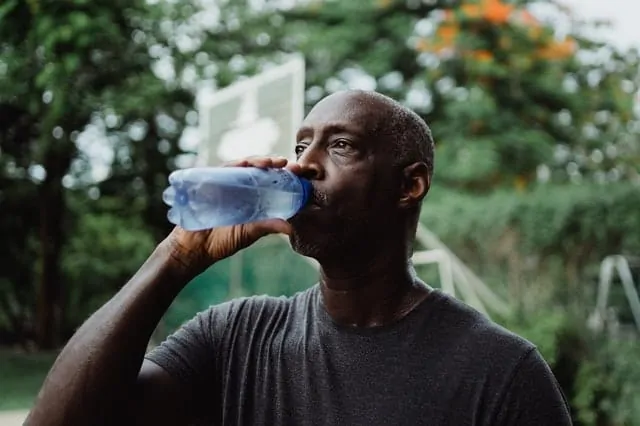Think back to the last time your nose was so stuffy you had no choice but to breathe out of your mouth. Do you remember what your mouth felt like? It was probably dry, scratchy, and almost sticky. This is appropriately known as dry mouth. While dry mouth is an annoying and uncomfortable feeling, it’s usually not serious when experienced occasionally. However, if you have a dry mouth that doesn’t go away, it could lead to some concerning oral health problems for your dentist in Kennesaw.
What’s So Bad About Dry Mouth?
When your mouth feels dry it means that your salivary glands aren’t producing enough saliva to keep the inside of your mouth wet and well lubricated. This can be a problem if it happens day after day. Healthy mouths need saliva in order to help fight off damaging bacteria and acids that can cause decay or other oral health problems. But when there’s enough saliva to rinse away these acids and bacteria, your teeth are at risk.
Causes of Dry Mouth
Like many ailments, unfortunately, there’s no one cause for dry mouth. But there are a few top culprits that your Kennesaw dentist sees regularly. Some of the most common causes of dry mouth include:
- Dehydration – Perhaps the most common explanation behind dry mouth is simply dehydration or not drinking enough water. It’s important to drink at least eight 8 ounce glasses of water throughout the day every day to keep your mouth (and your body) properly hydrated. If you work out or just sweat a lot, you will need to up your water intake. Usually, dry mouth caused by dehydration is quickly reversed once you replenish your body with lost water. However, if your dry mouth still doesn’t go away, you should consider other explanations.
- Medications – Medications are another common cause of dry mouth. Now, dry mouth caused by medicine doesn’t usually go away by drinking water and staying hydrated. It’s usually chronic and ongoing. Both prescription and over-the-counter medications are known to cause dry mouth. In fact, there are hundreds, if not thousands, of meds that list dry mouth as a side effect. Make sure you read the precautions and common side effects of any medicine you take, and if you notice that your medication may be causing dry mouth, talk with your dentist in Kennesaw. Never stop taking medication without talking to your doctor.
- Alcohol & Tobacco – Those who use tobacco products or drink alcohol regularly are more likely to have dry mouth. Both tobacco and alcohol are naturally drying, and when they’re introduced to the mouth regularly, dry mouth can become a chronic condition.
- Disease – Have you ever wondered why your dentist needs to know your whole health history and not just your oral health history? The reason behind this is because there are many ways your oral health affects your overall health and vice versa. For example, some diseases and medical conditions can cause dry mouth, and in turn, increase the risk of decay. Some common diseases that have been linked with dry mouth include diabetes, Parkinson’s, HIV/AIDS, and Sjögren’s syndrome. Make sure you’re honest with your dentist about your overall health so you can get the best dental care for you.
How Can You Treat Dry Mouth?
Every person’s case of dry mouth is different, and that means that treatment will vary depending on what’s causing the dry mouth in the first place. Your dentist in Kennesaw will be able to help you find the best dry mouth treatment for you, but it’s also important to make sure you’re doing all the right things at home to help. Make sure you:
- Drink enough water
- Limit or avoid caffeine, alcohol, and tobacco
- Chew sugarless gum to help boost saliva production
If you’re concerned dry mouth may be causing dental problems, or you’re just ready to get dry mouth relief once and for all, call our dental office to schedule an appointment. We’re always happy to help.
Growing up, Dr. Bruce Hester always knew he wanted to pursue a dental career. After graduating at the top of his class, he practiced alongside his father at their own dental office, Hester Dental. He has continued his dad's legacy of professionalism and caring after his dad's retirement. Dr. Hester is certified in the administration of Botox and dermal filler therapies. A member of several dental associations, he has been recognized by Omicron Kappa Upsilon, the National Dental Honor Society.
Read The Full Bio
